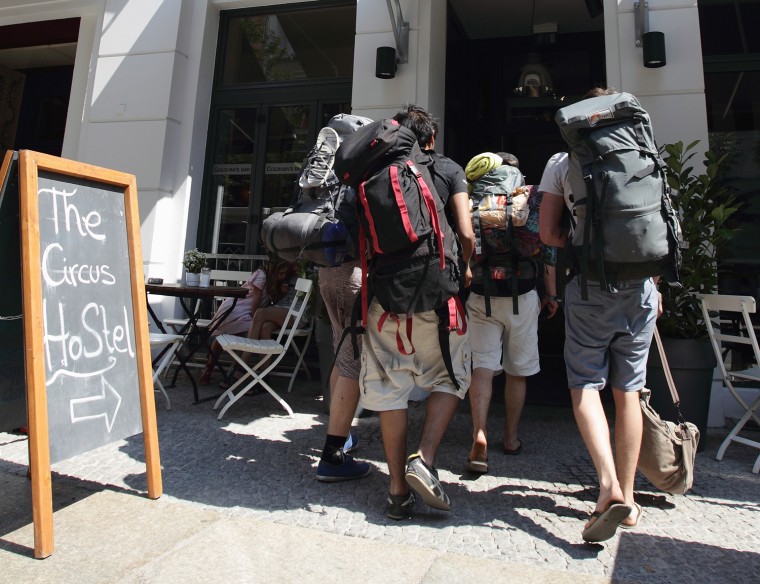There's good news for budget-conscious travelers who want to hop the pond to Europe: Two new rankings show many top destinations are downright affordable.
"Most of Europe is still reasonably priced for Americans," with costs in many cities similar to those in North America, said Roger Wade, who researched and compiled two recently released lists that rate 47 major European cities based on affordability.
Bucharest (Romania), Sofia (Bulgaria) and Krakow (Poland) are the cheapest major tourist cities on the European Backpacker Index for 2013, while Zurich (Switzerland), Oslo (Norway) and Venice (Italy) ranked as the most expensive.
Sofia, Bucharest and Budapest (Hungary) are the most affordable destinations on the Europe 3-Star Traveler Index for 2013, and Zurich, Paris and Venice are costliest.
“In places like Krakow, Budapest, and Prague, it's still very easy to get a meal for $5 and a beer for under $2 -- in very pleasant surroundings,” said Wade, founder of Price of Travel, a website that helps travelers compare expenses in major cities around the world.
Europe's cheapest cities cost about a quarter as much as its most expensive, the indices show.
The Daily Backpacker Index daily rate for Bucharest is currently $23.38 a day; for Zurich, it’s $119.78 a day.
Sofia is the least expensive city on the 3-Star Traveler Index, due to well-located and well-reviewed hotels that can frequently be found for about $40 per night. A similar 3-star hotel room in Zurich starts at around $155 per night in shoulder season, Wade said. Prices crept up very little overall for food, attractions and transportation, he added.
Rates for hostels and hotels in some European cities have been declining, data show.
Hostels have come down in Bucharest, Krakow, Zagreb (Croatia), Barcelona (Spain) and even Rome, Wade said. “It seems like more new hostels continue to open up (often converted from under-performing hotels), and hostel customers tend to be more price sensitive so the expensive places just don't fill up.”
Deals for 3-star hotels are good in St. Petersburg (Russia), Athens (Greece), Berlin and Barcelona, he said. “The most dramatic difference by far is Moscow, which is 15th cheapest for backpackers, but 34th for 3-star hotels. The city has some good and cheap hostels, and things like public transportation and food are quite cheap if you follow the locals," Wade said. "But international-standard hotels in Moscow are notoriously expensive so it's in a whole different price category for those seeking comfort and English-language menus.”
The Backpacker Index is based on the price of a hostel bed (one night in a good location with good reviews), two public transportation rides, three budget meals, one cultural attraction and three inexpensive beers (or wine) for each day in each city.
The 3-Star Index uses a centrally located and well-rated 3-star hotel room, taxi rides and a higher allowance for food prices.
These types of resources "appeal because they intrigue us and speak to the armchair traveler in us all, said Jonathon Day, an assistant professor at Purdue University’s School of Hospitality and Tourism Management.
But they also are practical for planning, to help people organize and sort through an overwhelming amount of information.
It is “really hard to compare prices of complex things like a visit to a city,” Day said. And by offering new options beyond the iconic locations, which are often expensive, it encourages experimentation. “Lists like these place destinations that aren't 'top of mind' in front of potential travelers,” he said. “This is good news for destinations competing for attention ... and ultimately visitors.”
The dollar is at a 13-month low versus the euro, said Neil S. Martin, editor of the Trans-Atlantic newsletter, which reports twice a month on the U.S. market for travel to Europe. “But that doesn't seem to dissuade very many Americans” from traveling to Europe. U.S. visits to Europe were up 3.9 percent to 11.2 million last year, according to the Commerce Department -- probably the best year since 2007, he said.
European countries going through tough economic times -- Greece, Spain, Portugal, Ireland -- are all very pro-tourist and welcoming, he said. The best deals are likely in Hungary, Romania and Bulgaria, "where local currencies have probably dropped versus the dollar."
But saving money may not be the only benefit of budget travel. “Rick Steves is famous for saying that the more money you spend, the larger the barrier you create between you and the local people, and I totally agree with that,” said Wade. “If you have lunch in a cafe on the main town square you'll probably be surrounded by business travelers and other tourists, but if you walk a few blocks in any direction you can probably find the same meal (or better) for half the price and you might be the only foreigner in the place.”
